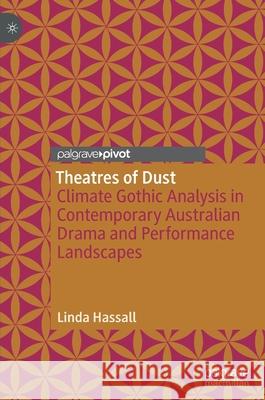Theatres of Dust: Climate Gothic Analysis in Contemporary Australian Drama and Performance Landscapes » książka
topmenu
Theatres of Dust: Climate Gothic Analysis in Contemporary Australian Drama and Performance Landscapes
ISBN-13: 9789811661587 / Angielski / Twarda / 2021 / 156 str.
Kategorie:
Kategorie BISAC:
Wydawca:
Springer Verlag, Singapore
Język:
Angielski
ISBN-13:
9789811661587
Rok wydania:
2021
Ilość stron:
156
Waga:
0.36 kg
Wymiary:
21.01 x 14.81 x 1.27
Oprawa:
Twarda
Wolumenów:
01
Dodatkowe informacje:
Wydanie ilustrowane











